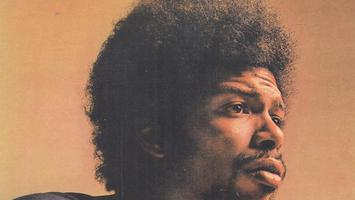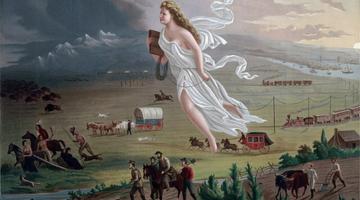The inequitable power relations, in terms of race, in college sports is a byproduct of weakening of HBCU sports through desegregation.
“Sports were a site of community empowerment, not just protest and achievement.”
In this series, we ask acclaimed authors to answer five questions about their book. This week’s featured author is Derrick E. White. White is Associate Professor of History at the University of Kentucky. His book is Blood, Sweat, and Tears: Jake Gaither, Florida A&M, and the History of Black College Football.
Roberto Sirvent: How can your book help BAR readers understand the current political and social climate?
Derrick White: Blood, Sweat, & Tears sheds light on the racial dynamics of modern college football, specifically, and athletics more generally. The inequitable power relations, in terms of race, in college sports is a byproduct of weakening of HBCU sports through desegregation. On Saturdays in the fall, Black colleges compete against predominately white institutions (PWIs), especially schools from larger conferences. These games are often lopsided affairs. For example, the University of Central Florida (UCF) beat Florida A&M (FAMU) 62-0 in the first game of the 2019 season. FAMU received $350,000. The payouts and the often-lopsided scores are examples of the price of integrating college sports. FAMU can balance its athletic budget, while UCF gets a victory.
While these athletic arrangements are commonplace between smaller and larger Division-I teams, when HBCU teams are involved, there is a tinge of sadness about the possibilities. In Blood, Sweat, & Tears, I argue that FAMU was the best football program in Florida before desegregation. College athletics is one area in which we can measure the costs of desegregation.
“FAMU was the best football program in Florida before desegregation.”
Sports integration brought talented African American players to white colleges, but no coaches or administrators at the same rate. In 2019-2020, at the Division-I level, only 9 percent coaches and 8.7% of the athletic directors are African American, whereas approximately 55 percent of players are African American. The integration of college sports has provided more playing opportunities but fewer in sports leadership.
In telling the history of football at Historically Black Colleges and Universities (HBCUs), I make three interrelated points. One, I show how segregated institutions—colleges, the media, and communities—combined in the development and expansion of HBCU sports. Two, I show how Florida A&M's Jake Gaither and a generation of coaches built upon this foundation to create the Golden Age of Black College Football after World War II. Finally, I examine how integration undermined decades of program building at Florida A&M.
What do you hope activists and community organizers will take away from reading your book?
I hope activists take away two broad points. First, I want them to recognize that sports were a site of community empowerment, not just protest and achievement. Throughout Blood, Sweat, & Tears, I show how “segregation became congregation.” Florida A&M's football program was the product of players, coaches, administrators, alumni, and black communities. FAMU used a network of human resources to offset the economic inequalities caused by segregation. My examination of Black college football provides nuance to the dominant narratives of segregation and integration. FAMU’s legendary coach, Jake Gaither, would lament, “We’re a black team that’s being done in by integration.” Black college football, at its best, reveals the power of black communities behind the veil of segregation. For today’s activists, understanding the power of black communities is vital in transforming America.
I hope to encourage supporters of HBCU athletics to develop strategies to return HBCU sports to their former glory. The three decades between World War II and the mid-1970s marked the Golden Age of Black College Football. HBCU programs, like FAMU, produced dominant teams and world-class players. By the 1960s, HBCU players were all-stars on the professional gridiron. Many fans and alumni long for a return to this era. They are fully aware that segregation and racism meant talented student-athletes played for FAMU or Grambling rather than the University of Florida or LSU. For those born in the last four decades, Blood, Sweat, & Tears provides a window into the possibility of highly competitive HBCU football. Black college football faces tremendous institutional obstacles that include fundraising, infrastructure, and recruiting. However, I hope that my book can be used as part of the larger project in promoting the importance and greatness of HBCUs.
We know readers will learn a lot from your book, but what do you hope readers will un-learn? In other words, is there a particular ideology you’re hoping to dismantle?
I hope readers will unlearn the belief that predominately white institutions’ college sports teams were always the dominant football programs. Florida A. & M. was the best football program in the state from 1938 - 1969. This simple idea is counterintuitive to the contemporary football landscape. The legacy of football at Alabama, Clemson, Miami, Florida, Texas, and other universities needs to be juxtaposed against the desegregation. I show in Blood, Sweat, and Tears that many white college football coaches were well aware of the greatness of Florida A&M, Grambling, Southern, Prairie View, and HBCU teams, and these coaches were glad segregation prohibited the teams from playing. Many HBCU football programs were better than their better-known white in-state counterparts.
In addition, my book shows how HBCUs sports programs challenged the assumptions of the civil rights movement. The NAACP’s legal arguments for desegregation argued that black educational institutions (primary, secondary, and higher education) were inferior. The examination of FAMU’s football program complicates this argument. Under Gaither, Florida A&M had the best college football program in Florida and one of the best in the country. Its material resources paled in comparison to the University of Florida. However, Gaither’s coaching and recruiting produced better teams on the field. The presence of a dominant football program complicates the presumptions of educational desegregation as espoused by Brown v. Board of Education (1954).
Who are the intellectual heroes that inspire your work?
My work was inspired by C.L.R. James’ work on cricket in Beyond a Boundary. This is still one of the greatest works on sports and culture. James’s work shows how sports matter beyond the box scores. His attention to the cultural impact of sports has shaped the scholarship in the field.
Legal Scholar Derrick Bell punctured the assumption of benevolence behind Brown v. Board of Education (1954). In his 1980 essay on the “interest-convergence dilemma,” he contends “that the decision in Brown to break with the Court’s long-held position on [racial] issues cannot be understood without some consideration of the decision’s value to whites, not simply those concerned about the immorality of racial inequality, but also those whites in policymaking positions able to see the economic and political advances at home and abroad that would follow abandonment of segregation.” Bell addressed this idea again through his legal allegories in And We Are Not Saved (1987) by highlighting the costs of integration in terms of closing black schools, the firing of black teachers, and the demotion of black principles.” Bell’s interrogation of the civil rights orthodoxy influenced my approach to HBCU sports.
I would add that I have been motivated by education scholars such as James Anderson, Vanessa Siddle Walker, and others who have reminded readers of the positives that occurred during segregation. Finally, I owe a debt to the great HBCU coaches. Jake Gaither, Eddie Robinson, Arnett Mumford, Cleveland Abbott, John McLendon, and others. These coaches were organic intellectuals infusing generations of players with wisdom, inspiration, and strategies to improve communities.
In what way does your book help us imagine new worlds?
Blood, Sweat, & Tears help to imagine a world in which Black-led athletic institutions are also sources of power on and off the field. Scholars have noted that HBCUs, a small subset of American colleges, overperform in producing educated African Americans. Athletically, Black colleges, in the 1950s and 1960s overperformed in producing professional basketball and football players, and Olympic track athletes. The world of HBCU dominance is in the past but also can serve as a blueprint for the future.
It also envisions a world in which HBCU athletics were the primary destination for the very best athletes. What would that mean for the education of African American student-athletes? I hope readers imagine a world in which the most talented black college athletes learn from black coaches at HBCUs. This would, indeed, shake up the world.
Roberto Sirvent is Professor of Political and Social Ethics at Hope International University in Fullerton, CA. He also serves as the Outreach and Mentoring Coordinator for the Political Theology Network. He is co-author, with fellow BAR contributor Danny Haiphong, of the new book, American Exceptionalism and American Innocence: A People’s History of Fake News—From the Revolutionary War to the War on Terror.
COMMENTS?
Please join the conversation on Black Agenda Report's Facebook page at http://facebook.com/blackagendareport
Or, you can comment by emailing us at comments@blackagendareport.com



















